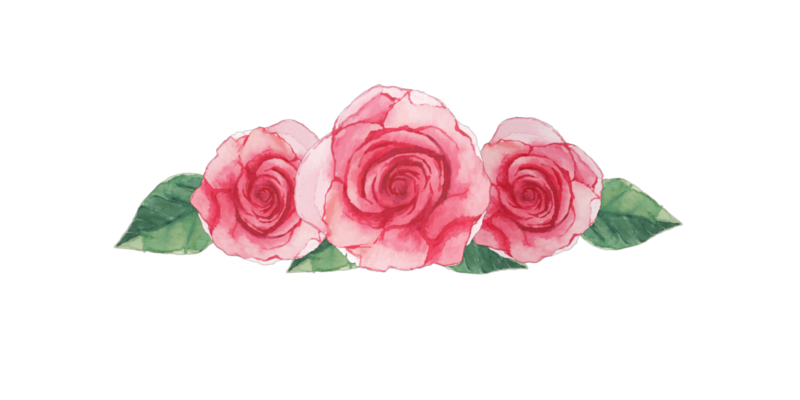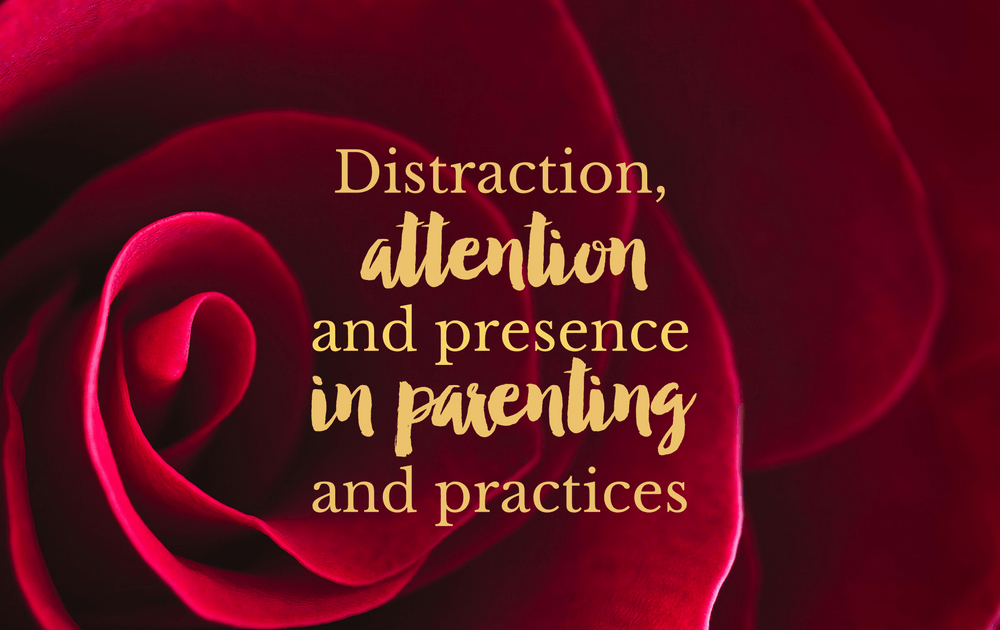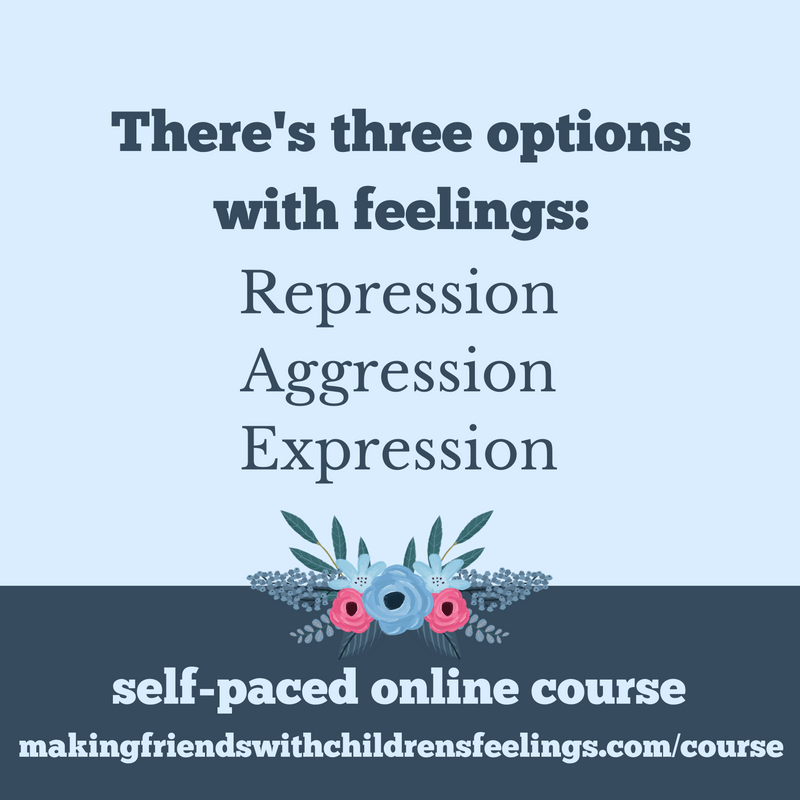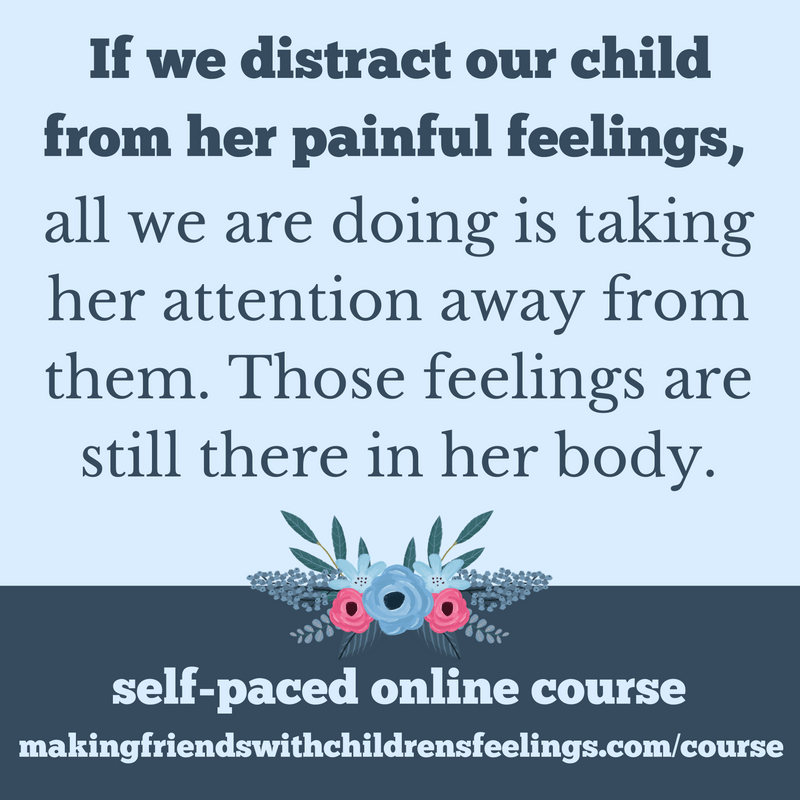Hello again!
I wonder if you’ve ever thought very much about what distraction is.
For example, if your child is upset and you distract him with a snack, what actually happens?
Distraction really means that we take his attention away from his upset feelings, and guide his focus on to something else (in this case, the process of eating.)
The thing is, although we take his focus away, the feelings are still there.
And the paradox is, when we distract our child from painful feelings, then they stay with him.
They don’t get to be expressed and released.
And then they accumulate, and again paradoxically, they actually lead to him feeling LESS happy – because he’s agitated with those feelings inside, he may feel less present, less available for learning and new experiences, less loving, less cooperative, and less able to sleep.
What happens instead if, when our child is upset, we stay close, and give focus to the feelings?
What happens if we stay present and connected and offer him empathy, whilst showing and telling him that we are listening?
That means he fully feels the feeling, and as he expresses it to our loving ears, it is released from his body.
The paradox is, his feeling his uncomfortable feelings with us means he is then freer to be happy, joyful, connected, present, aware, open to learning and new experiences, more able to concentrate and cooperate.
I wonder if you’ve been interested in the new age, or spirituality, or personal development?
You may have heard Ram Dass say, “Be Here Now.”
You may have done forms of meditation where you stay present and focussed on what is arising within you.
You may have done Focussing.
These are all similar to what we can do with our child.
Staying present and giving focus to his feelings when he feels them means that those feelings are free to move through him – e-motions – meaning he is clearer and more connected to himself and others.
And this includes joyful and excited and exuberant feelings too.
Our presence with his feelings means that he learns to be able to be present with those feelings in himself.
Presence allows feelings to flow.
Distraction is like a dam that backs up feelings.
And when there’s a lot of water flowing into a dam, eventually the dam may break, and all those feelings come out.
And we are so similar as adults.
(Except for feelings that are created by judgments – those are stagnant all of their own accord!)
I wonder if you notice the difference between distraction and presence with your feelings, and your child’s feelings, and if there are any steps you’d like to take to stay present with a wider range of feelings for you both?

I love that, as I write, I get clearer about things.
I got this bit of clarity about distraction through creating my Making Friends with Children’s Feelings Course.
It’s ideally for parents who are new to, or unfamiliar with, Aware Parenting.
CLICK HERE or on one of the memes below to find out more:
Love,
Marion
xxx


